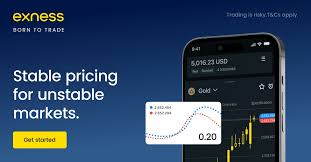
In the fast-paced world of online trading, connectivity is crucial for success. When traders rely on platforms like exness server down Exness trading, they expect seamless access to the financial markets. However, incidents of server downtime can disrupt trading activities, leading to potential losses and frustration for users.
Understanding Exness Server Downtime
Exness, a well-regarded forex and cryptocurrency brokerage, is known for offering various trading tools and services. Nonetheless, like any online platform, it is not immune to technical issues. Server downtime refers to periods when the trading platform or its services are unavailable to users, hindering their ability to execute trades or access their accounts.
Possible Causes for Server Downtime
There are several factors that can contribute to server downtime at Exness:
1. Technical Maintenance
Every trading platform requires regular maintenance to ensure optimal performance. Scheduled maintenance can lead to temporary unavailability of services. While Exness typically informs users in advance, unexpected outages can occur, disrupting trading activities.
2. High Traffic
During periods of significant market volatility or economic announcements, trading volumes can soar. Increased traffic may overwhelm servers, causing slowdowns or outages. It’s essential for Exness to scale resources effectively to handle such influxes.
3. Cyber Attacks
Cybersecurity threats are a persistent concern for online platforms. DDoS (Distributed Denial of Service) attacks can overwhelm the server with traffic, rendering the services inaccessible. While Exness invests in robust security measures, the threat of cyber attacks remains a challenge.

4. Network Issues
Problems with internet connectivity or routing issues can also lead to server downtime. If the connection between a user’s device and Exness servers is interrupted, it may appear that the platform is down even if the servers are operational.
Implications of Server Downtime on Traders
The impact of server downtime can be profound and multi-faceted:
1. Missed Opportunities
Traders depend on real-time data to make informed decisions. When the platform is down, they may miss critical trading opportunities, whether it’s entering new trades or managing existing positions.
2. Increased Volatility
Server downtime can lead to increased market volatility. If a significant number of traders are unable to execute trades simultaneously, price movements may become erratic, creating instability in the market.
3. Emotional Strain
The uncertainty that comes with server outages can induce stress and frustration among traders. The inability to access funds or positions can lead to panic, causing traders to make hasty decisions when the platform becomes available again.
How to Manage Trading During Downtime

While server downtimes are unfortunate, traders can take proactive steps to manage their trading effectively:
1. Stay Informed
Traders should follow official communications from Exness. The company typically shares updates on their status page or through social media. Being informed helps to set realistic expectations regarding the duration of interruptions.
2. Utilize Alternative Methods
Consider using mobile apps or alternative platforms provided by Exness for placing urgent orders. These methods may still offer access to trading features when main systems are down.
3. Plan for Contingencies
Having a trading plan that includes risk management strategies can minimize potential losses during unexpected downtimes. Setting stop-loss orders and position limits in advance can protect your capital during volatile conditions.
4. Explore Different Markets
If the downtime affects a specific market, look for trading opportunities in other asset classes. Diversifying your trading portfolio can help you mitigate risks during these periods.
Conclusion
Server downtime at Exness can pose significant challenges for traders. While the brokerage is committed to providing reliable services, understanding the potential causes of outages and their implications is essential for effective trading. By staying informed and preparing for contingencies, traders can better navigate these situations and minimize their impact on trading performance.
In conclusion, while server downtime can be frustrating, it is a reality of the digital trading landscape. With the right strategies and an informed mindset, traders can adapt and remain resilient in the face of such challenges.

